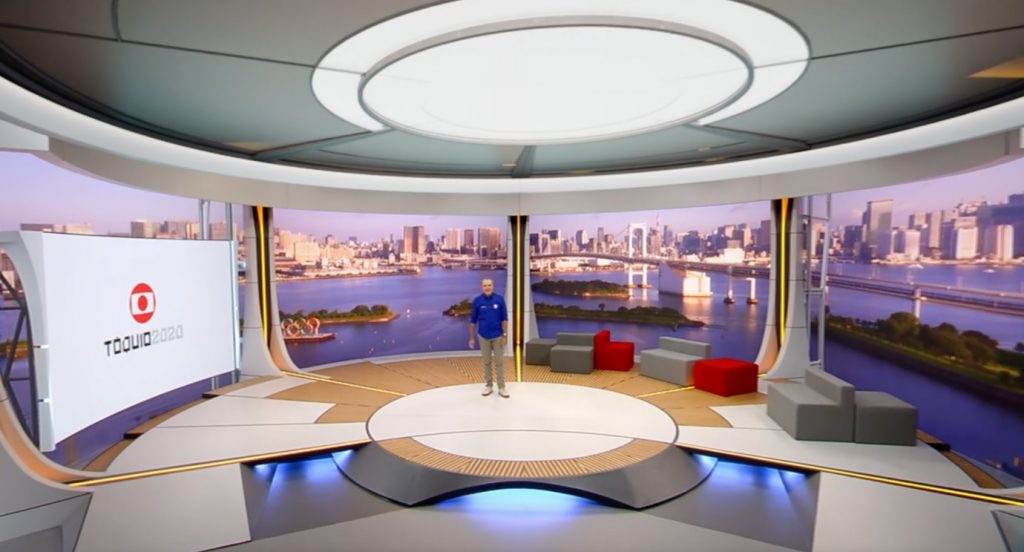
In an increasingly borderless world, Fuji Television is enhancing its ability to respond to clients around the globe.
In the year 2021, the Olympic Games came to Tokyo for the second time in history after a year’s delay. Odaiba in the Tokyo Bay zone, home to Fuji Television, attracted worldwide attention as the location for many of the competition venues. In particular, during the Triathlon, the Fuji Television building along with the Rainbow Bridge served as a stunning backdrop to the race as it was broadcast to the world, gaining Odaiba its recognition as the ultimate place for a spectacular view of Tokyo, and giving it a historical mark in these challenging times of the pandemic.
Yet there is also another significant story for Odaiba going way back in history. When Commodore Matthew Perry of the United States and his squadron of warships dropped anchor in what’s now the current Tokyo Bay area in 1853, Japan had been secluding itself from the rest of the world.
Ruled by a shogun and a feudal system of samurai warriors, the Tokugawa shogunate had enacted a national isolation policy for more than 200 years. The United States, eager to expand the reach of American commerce, had intimidated the shogun into allowing trade with the United States. Faced with the cannons of warships, the shogun built battery islands within the Tokyo Bay area to defend the city from foreign incursions. The name Daiba, where Fuji Television is located, derives from the Japanese term for battery, literally meaning “battery place.” Perry’s expedition triggered a chain of events that turned Japan to a whole new direction. Odaiba was once a military fort, excluding all things foreign, but now it has evolved into a place where people’s dreams reach out to the world.
At the end of the 20th century, Fuji TV came to Odaiba, the cityscape changed, and the Olympics left a legacy for us as well.
During the Tokyo 2020 Olympic Games, we took on a whole new business operation. That is, the provision of our company’s building space and technology. We were blessed with the fortune of being surrounded by various competition venues, the close proximity to the International Broadcast Center (IBC) and the Main Press Center (MPC). The benefits of our perfect location for live coverage, with the state-of-the-art, fully digitalized video production facilities became a business opportunity which attracted other companies in the same industry.
Fuji Television provided its headquarters and broadcast facilities to the following partners: ESPN, NBC, OBS (Olympic Broadcasting Services), and TV Globo. American sports channel ESPN used our studio space with a panoramic landscape of the entire city, while American TV network NBC and OBS used our rooftop areas for live broadcast. Brazil’s biggest network TV Globo (photoed) also used our rooftop for its programming in Rio de Janeiro, creating a spectacular composite screen for the Olympics. It is through projects like these that the bonds between Fuji Television, global broadcasters and institutions grow deeper and mutually beneficial. By connecting globally, Fuji Television continues to expand television’s horizon and endeavors.
From isolation to connection. TV today is now more global and diverse than ever imagined. The need to connect and be together is something universal. TV is the window to the world. Creativity has no borders.

